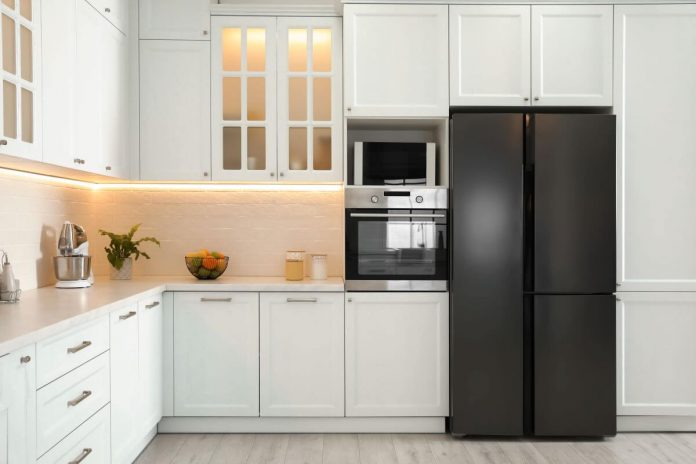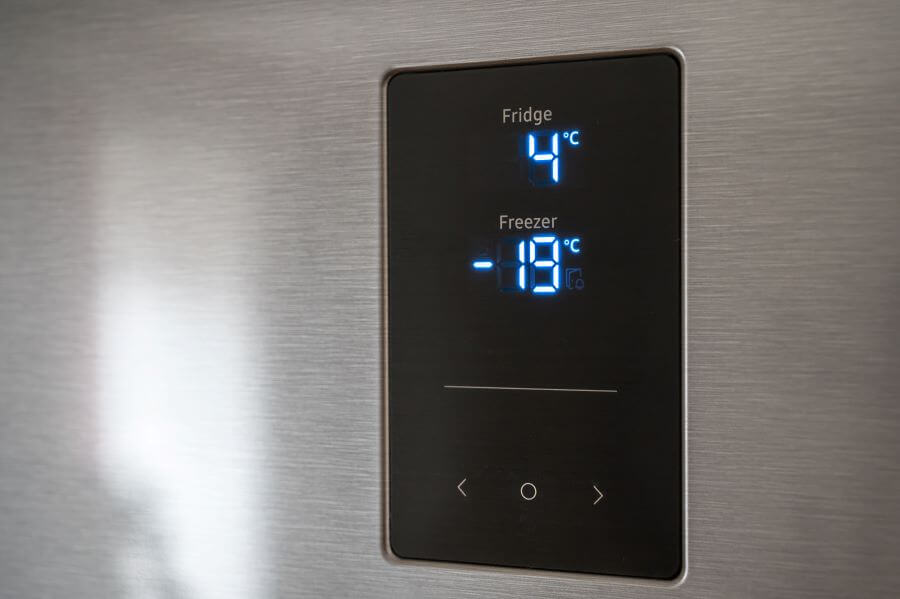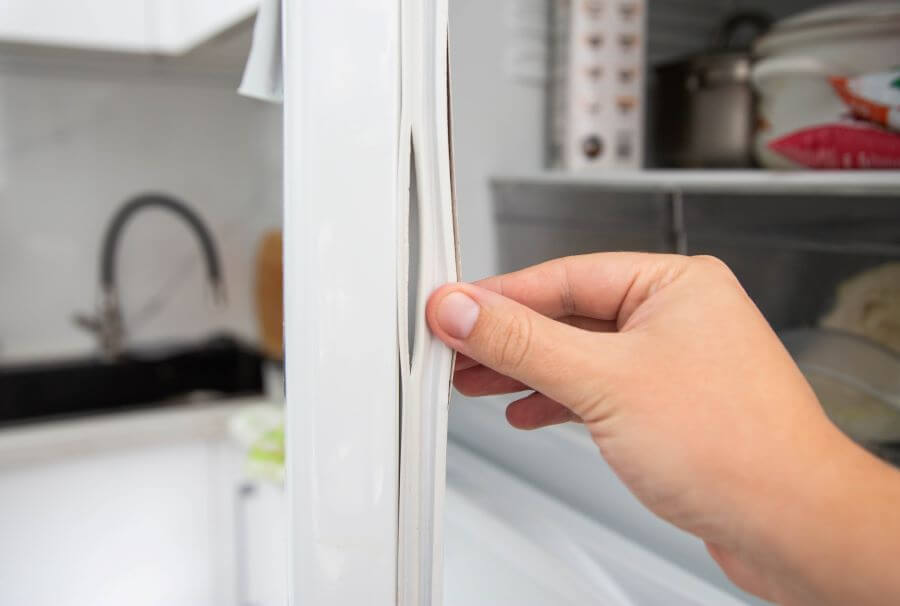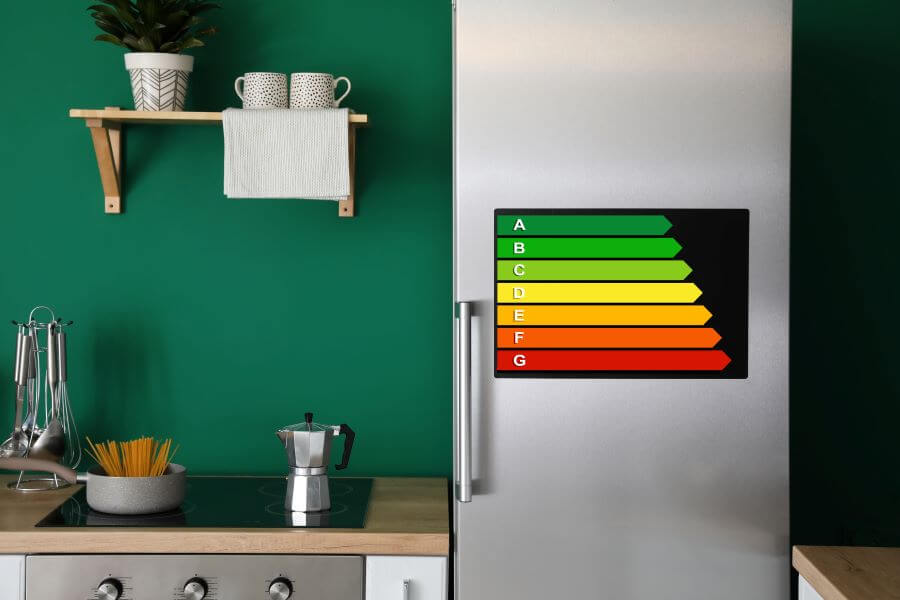
Contents
Last Updated on 3rd February 2024
A refrigerator is a cornerstone of the modern kitchen, a silent sentinel safeguarding our food and drinks. It’s easy to overlook this faithful appliance until it falters. However, with a bit of care and attention, we can significantly extend its lifespan and efficiency, and save energy in the process.
Understanding how to maintain your fridge prevents premature breakdowns and contributes to energy savings and food storage safety. By adopting a few habits and being mindful of its use, you can enhance the performance and longevity of this indispensable appliance.
Understanding Your Fridge’s Needs
A fridge’s efficiency largely depends on how well we understand and meet its needs. The condenser coils, often overlooked, play a vital role. These coils, usually located behind or beneath the fridge, are responsible for dissipating heat. When they accumulate dust, the fridge’s efficiency plummets, leading to increased energy consumption and strain on the appliance.
Additionally, ensuring your fridge is perfectly level is crucial. An uneven fridge can lead to misaligned doors and seals, causing cool air to escape and the appliance to work harder than necessary. Regularly checking and adjusting your fridge’s positioning protects its mechanics and ensures optimal performance.

Optimal Temperature Settings
Setting your fridge to the correct temperature is a balancing act that reaps benefits in efficiency and food safety. The ideal fridge temperature ranges from 3°C to 5°C for a balance between an efficient fridge and keeping food cold enough to keep it fresh. While freezers should be kept at around -18°C. These settings prevent your fridge from overworking and use more energy, thereby conserving energy and reducing wear on the compressor.
It’s wise to invest in a digital thermometer to maintain the refrigerator temperature consistently. Built-in thermostats can sometimes be inaccurate, leading to fluctuations that can stress your fridge’s cooling system. A reliable thermometer ensures you’re always in the know, allowing you to make adjustments as needed.
Efficient Loading and Unloading
How you stock your fridge can significantly affect its efficiency. A packed fridge restricts air circulation, while a sparse one makes the appliance work harder to cool empty space. Striking the right balance is essential. Ensure there’s enough room for air to move freely around your groceries.
It’s advisable to cover all food and liquids stored in the fridge. Uncovered items release moisture into the airflow, making the fridge work harder to regulate humidity and temperature. Let hot food cool down before placing it in the fridge. This simple practice reduces the thermal load, aiding your fridge in maintaining its optimal temperature without extra effort.

The Role of Appliance Repair Specialists
Recognising when to seek professional help is key to maintaining your fridge’s longevity. If you notice any warning signs, such as unusual noises, a decrease in cooling efficiency, or a damaged seal, it’s time to consult appliance repair services. Addressing these issues early can prevent them from escalating into costly repairs.
Regular maintenance checks by professionals can also identify potential problems before they worsen. These experts can fine-tune your fridge, ensuring all components are functioning as they should. This proactive approach not only extends the life of your fridge but also maintains its efficiency.
Energy-Saving Practices
Adopting energy-saving habits is beneficial for both your fridge and the environment. One simple yet effective practice is to minimise the time the fridge door is left open. Each moment the door remains ajar, the fridge loses cold air, forcing the compressor to work harder to replenish it.
Positioning your fridge in a cool, shaded spot away from heat sources like ovens or direct sunlight can also reduce its workload. This strategic placement prevents the fridge from struggling against external heat, thereby conserving energy and enhancing its efficiency.
Cleaning and Maintenance
Routine cleaning is essential for the health and efficiency of your fridge. A clean interior, free from spills and crumbs, prevents the growth of bacteria and odours. Use a mild detergent to wipe down the shelves and drawers. This not only maintains hygiene but also ensures optimal performance.
Pay attention to the rubber seals around the door. These seals are critical in keeping the cold air locked inside. Clean them regularly to prevent debris build-up and inspect them for any signs of wear or damage. If they’re loose or cracked, replacing them promptly can significantly improve your fridge’s energy efficiency.

Upgrade Wisely
While maintenance can prolong the life of your fridge, there comes a time when upgrading to a newer model is the more prudent choice. Modern refrigerators are designed with energy efficiency in mind. They often include features that older models lack, which can lead to long-term savings and improved functionality.
When considering a new fridge, focus on energy-efficient models. These fridges may have a higher upfront cost but can lead to substantial savings on your energy bills over time. Look for models with a high energy rating, as they are designed to minimise environmental impact while offering peak performance.
Summing Up
Your refrigerator is an unsung hero in the household, tirelessly working to preserve your food. Implementing these simple practices can significantly enhance its efficiency and extend its lifespan. Regular maintenance, mindful usage, and understanding when to seek professional help are key to keeping your fridge in top condition. Remember, taking care of your fridge is not just about preventing breakdowns; it’s about ensuring a vital part of your daily life continues to function effectively and efficiently.


































